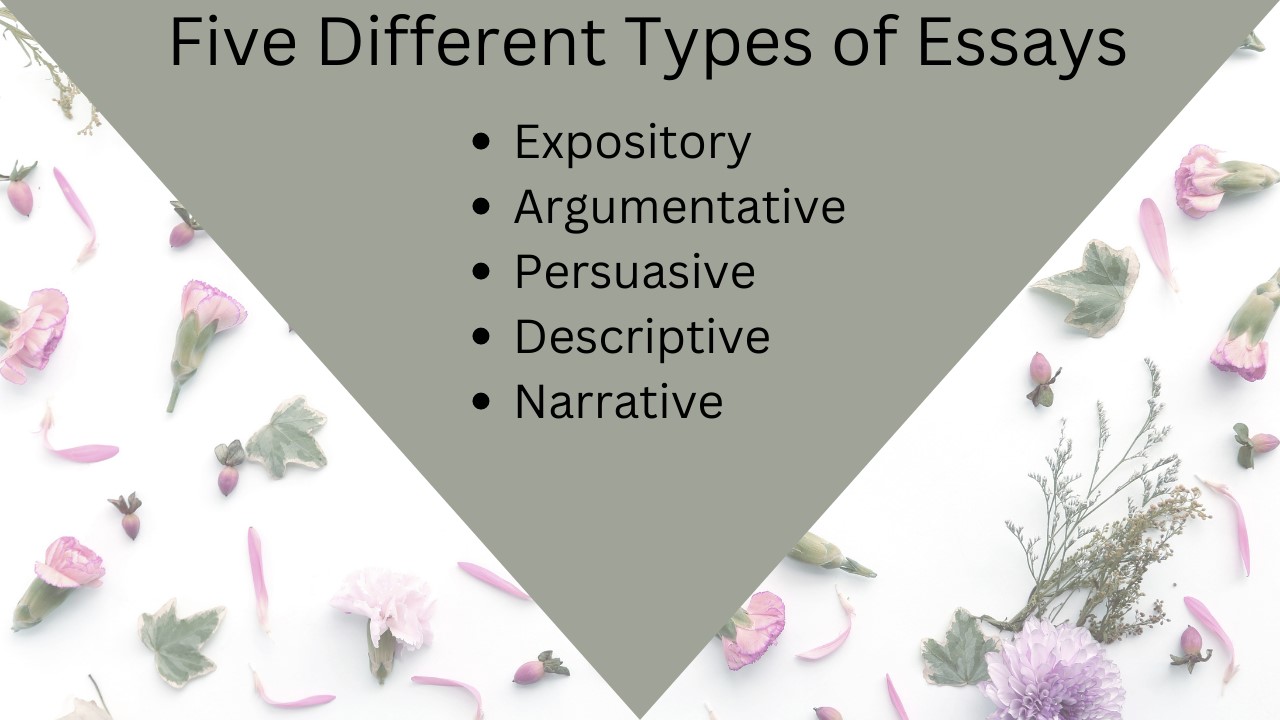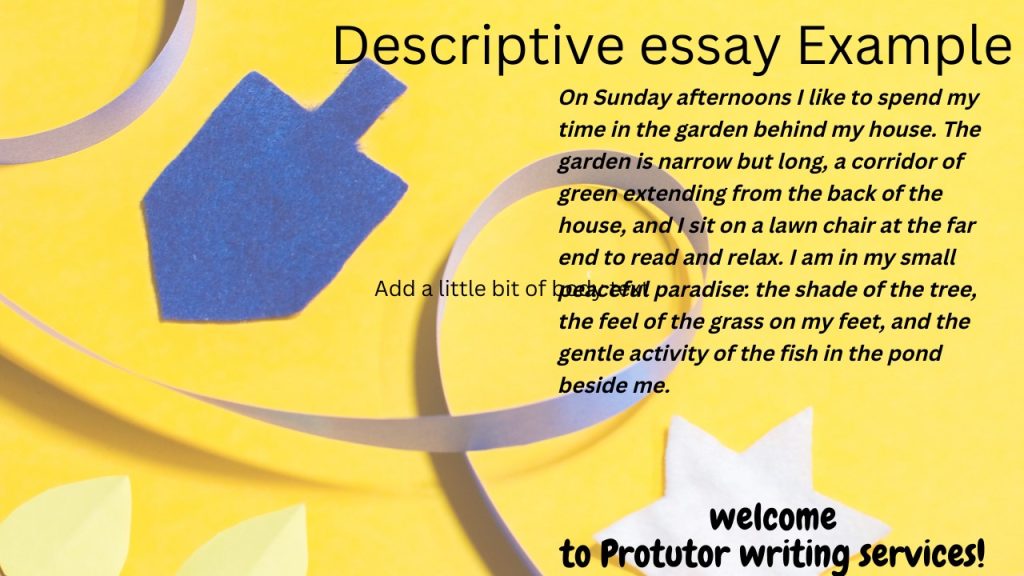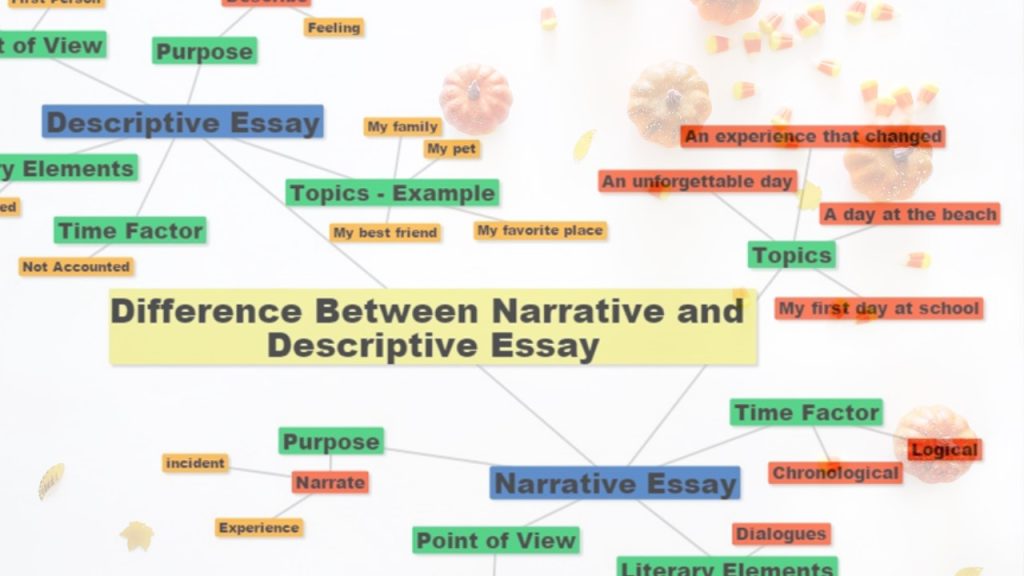The 5 Different Types of Essays

Whether you are in high school, a college student, or a passionate writer, knowing how to write various essays is essential. Choosing the correct type of essay, whether for a test or a college assignment, can dramatically boost your chances of success. In reality, even superb essay content can fail to express the main idea if the writer fails to incorporate key points. As a result, to respond to a writing challenge, you must distinguish between different types of essay writing styles and forms.
This article by Protutor online Writing experts offers you the guidelines you need to tackle any type essay. It discusses the five most common forms of essays and five others! In The post you will get to understand the different types of essays making it easy for you to ace in your assignments. Continue reading, and best of luck with your homework!
Get Your Custom Essay Written From Scratch
We have worked on a similar problem. If you need help click order now button and submit your assignment instructions.
Just from $13/Page
But remember if you need help writing your essay assignments, we are here for you. Our online writers will take up your assignment and ensure that you get the best grades.
What Exactly Is an Essay?
An essay is a nonfiction piece of academic writing written to develop a specific idea or to support an argument. In general, essays are used to give information, share the writer’s point of view on a topic, or argue against a thesis statement. The essay’s tone might be official or informal, depending on the objective of the writing. The essay formatting standards may also differ depending on whether it is a standard 5-paragraph piece or a lengthy essay work. Therefore, the essays that you write in high school or college differ. Here are the different types of essays that you will encounter during your academic life.
The Five Different Types of Essays
There are numerous varieties of essays, and you will most likely encounter several of them during your academic career. Although the particular requirements and expectations for each sort of essay may differ, there are five basic essay types that you must be familiar with. Let us examine each essay type:
Argumentative Paper
A thorough examination of a topic is required for an argumentative essay, which leads to the attainment and evaluation of evidence. An in-depth investigation is needed for you to achieve a well-defined perspective on the topic, which is assigned to you by your professor.
This style of writing typically requires substantial literary investigation. Argumentative essays occasionally necessitate empirical research through surveys, interviews, or observations. Doing extensive research ensures that you get a good understanding of the topic and the various points of view on it. You will be able to make an unbiased judgment on which opinion to follow as a result of the preliminary research, and your argumentation will be more persuasive.
Argumentative essays assess your abilities to conduct research and articulate your point of view on a given topic. This is the most prevalent essay style at the college level—most papers you write will contain some form of argumentation.
The standard argumentative essay is organized into five paragraphs as follows:
- Introduction – 1 paragraph
- Body -3 paragraphs
- Conclusion -1 paragraph
Your topic and thesis statement is should be presented in the introduction.
The body of your paper contains your evidence and arguments concerning different topics related to the main topic or thesis of your essay.
The conclusion summarizes and stresses the value of your argument.
Persuasive Essay
A persuasive essay is one in which the writer attempts to persuade the reader to embrace a particular point of view. Unlike an argumentative essay, a persuasive essay aims to persuade the reader to agree with you. It is critical to remember that a persuasive essay is more than just giving information; it is also about expressing your perspective and backing it up with proof.
Your point of view should emphasize your thesis, and you should back it up with facts. Be simple and concise, and avoid jargon or convoluted terminology. Your goal is to explain your point of view as clearly as possible so the reader will accept your argument.
Main Characteristics
A writer must construct persuasive essays with the following criteria in mind to maintain a consistent stance:
- Convincing: uses a convincing tone of speech to persuade the reader to agree. Accurate: delivers accurate facts and current cases or occurrences
- Informing: concentrates on facts, data, and proof.
- Reader-oriented delivers information from the reader’s point of view.
- Arguable: this style of essay has a contentious issue that sparks debate.
- If you need strong persuasive essay themes, remember that you can discover them right here.
- You should format a persuasive essay per academic guidelines like any other essay style. College teachers and university professors typically demand students to include the following sections:
- A topic-focused beginning with a powerful thesis statement
- A section of the body that contains arguments and supporting evidence.
- A conclusion that summarizes the argument and emphasizes its significance
Expository Writing
An expository essay seeks to give objective facts on a broad or restricted topic. This style of essay is frequently assigned as an in-class or exam task. Expository writing’s primary goal is to study a topic without presenting an argument. Expository essays necessitate the writer’s ability to express complex information in a straightforward, easy-to-understand manner. Unlike other forms of essays, it provides a fact-based critique. As a result, a student should speak in a neutral tone and provide concepts in a logical order.
Main Characteristics
This essay assesses the student’s ability to explain a problem clearly. You should use statistics and uncover factual examples while writing an informative post. The following Here are some of the most typical characteristics of explanatory essays:
- Informative: delivers the correct information
- Specific: a precise and explicit description of facts
- Well-organized: adheres to the order of events
- Semi-formal: no first-person nouns are used.
- objective: educates the reader without revealing personal ideas
- A typical explanatory essay structure consists of the following sections:
An introduction introduces a subject and provides background information.
The facts are explained in the body paragraphs.
A conclusion summarizes the data.
Descriptive Essay

The descriptive essay is the most expressive type of essay you will ever write. The purpose here is to describe something: a person, an object, a location, etc.
For example, a descriptive essay would not employ the oil business theme to demonstrate an explanatory thesis argument. Instead, descriptive writing would most likely center on an oil-related object, such as an oil drum, an oil ship, or even the liquid oil itself.
You should not limit your imagination in this style of writing. Instead, you’ll want to demonstrate your inventiveness and resourcefulness.
Main Characteristics
Typically, descriptive essays share characteristics with informal writing. The following are the essential features of descriptive writing:
- Demonstrative: your essay should demonstrate rather than narrate a subject.
- Through vivid descriptive details, you make an impression in the reader’s mind.
- Sensory expressions are those that appeal to all of the human senses.
- Analogies, metaphors, similes, allegories, and personifications are examples of figurative language.
- Emotional: refers to issues that have sentimental value in the essay you are writing.
- A descriptive essay has an equivocal structure requirement. You are free to use your imagination to describe an object in the most unconventional way imaginable. However, to satisfy academic objectives, this style of essay should have the following information:
- A quick description of the subject you will be portraying
- A thorough explanation
Narrative Essay
The definition of narrative writing is very similar to that of a story. It could be moving, dynamic, anecdotal, or thought-provoking. Your writing may use first-person pronouns, and your inventiveness is encouraged. A narrative essay must follow all tale standards and include an introduction, characters, plot, setting, climax, and conclusion. A book report is a sole circumstance in which a narrative assignment does not have to follow a plot plan. This informative narration is cold and emotionless.
As a writer your work is to guide a reader through a story without convincing or demonstrating any point in a narrative essay. On the other hand, a personal narrative should incorporate a moral component so that the listener might gain some significant insights. A student learns how to communicate their sentiments and emotions creatively by writing narrative essays. However, you must be able to maintain the consistency of a story.
Main Characteristics
Narrative essays and short tales are frequently confused: they are different. In a nutshell, the narrative essay serves an academic purpose by focusing on a personal experience that has occurred. At the same time, narrative essays share some characteristics with short stories. This sort of essay usually includes the following aspects of storytelling:
- The plot is the course of events. When and where a tale takes place are referred to as its setting.
- Character: a protagonist who sets off all events
- A conflict is a problem that a protagonist attempts to solve.
- Theme: a sense of moral obligation
- Narrative essays, like any other sort of academic assignment, have the following characteristics:
- Informative: tells a narrative without making an argument.
- Personal: written in the first person
- Nonfiction: recounts a truly personal experience
- Conversational: an informal and expressive tone of voice
- Well arranged: introduces individuals and events in chronological sequence

Difference Between a Narrative and A Descriptive Essay
Though there is a distinction between a narrative and a descriptive essay, these two essays are frequently mixed. Because they do not contain a lot of facts or information, narrative and descriptive essays can be produced by people of any age.
The primary difference between a narrative and a descriptive essay is their goal. A narrative essay is intended to tell the story of an incident or experience, whereas a descriptive essay is designed to describe a person, thing, or place.
A narrative essay is written in the first person, but a descriptive essay is written in both the first and third person.
A narrative essay follows a logical, generally chronological arrangement, whereas a descriptive essay does not consider time.
Another key distinction between narrative and descriptive essays is that a narrative essay recounts a tale and has a storyline, setting, and characters. Dialogue can also be included in a narrative essay.
What Is the Difference Between an Expository And An Argumentative Essay?
Expository and argumentative essays have many similarities and need clarification. The main distinction is the amount of preliminary research. Argumentative essays are frequently assigned as final projects summarizing the corpus of knowledge gained during a semester. Expository essays are shorter and less research-based. They are used for unprepared writing in class.
Other Types of Essay Writing
Reflective Essay
Reflective essays are those in which the writer reflects on their experiences and how they influenced personal transformation. Self-reflection is required for reflective essays. Typically, the writer studies and evaluates the past from the present perspective. This differs from an informative essay, in which the writer presents data about a specific subject from an unbiased perspective. Reflective essays reveal the writer’s views or attitudes toward a topic, whereas informative essays require the writer to maintain objectivity. Reflective essays are frequently contrasted with narrative essays. The essential distinction is that a narrative essay focuses on a specific event in time, but a reflective essay focuses on the writer’s changes due to their experiences.
An Analytical Essay
An analytical essay is a piece of writing that gives an in-depth study of a certain topic. Analysis papers can be written on various themes, including art, music, literary works, current events, historical events, politics, scientific study, and philosophy. Analytical essays are widespread in academic environments, as well as magazines, newspapers, academic journals, and trade publications. For the reader’s advantage, an excellent analytical essay can explain and contextualize simple material.
Cause And Effect Essay
The cause-and-effect essay is an argumentative essay in which the effective linkages between two issues are detailed. In a typical cause-and-effect essay or academic paper, the author demonstrates how one person, thing, idea, or event directly influences another person, thing, concept, or event.
Comparison And Contrast
Writing a compare and contrast essay allows you to contrast two subjects in the same paper. This implies that thesis statements, topic sentences, and descriptive details must address both topics. Critical thinking is also required for comparing and contrasting articles. You must go beyond simple descriptive writing to analyze and explain the relationship between your subjects to write one. A good comparison essay might teach readers about current events, political candidates, vacation spots, or items.
Exemplification Essay
Exemplification is the provision of examples concerning something. Examples are used as supporting material in this style of essay to explain or clarify a generalization.
The key to writing an effective exemplification essay is to include enough comprehensive and specific examples to make your point. Examples should be carefully picked to appeal to readers and assist them in understanding the primary topic of your essay.
Exemplification essays can include both brief and detailed examples.
Brief examples may appear regularly throughout the article, with just enough concise facts to demonstrate clear-cut themes. Comprehensive examples show complex ideas that are too complex to be effectively discussed using brief examples.
Tips On Writing Winning Essays
Always pay great attention to the instructions before writing any project. The typical interpretation of any essay style is less significant than your teacher’s assignment definition.
Ask questions when in doubt! No teacher will be offended if you ask for reasonable clarifications. It is preferable to compose the expected essay rather than to surprise your teacher with a creative effort. And, as a result, receive a low grade.
You’ll see that each of the types of essays mentioned above fits into the 5-paragraph essay framework. This essay structure is an effective technique for organizing your ideas. Practicing this structure will help you improve your writing.
Let Us Help
We know that sometimes telling the difference between the above essays can be an uphill task. Since the difference between them is very small. But you don’t have to worry about that. Our online writers at protutor services are here to help.
We offer high-quality cheap essay-writing services to our clients so they can concentrate on other areas of their studies.
So reach out today and spot the difference!
Needs help with similar assignment?
We are available 24x7 to deliver the best services and assignment ready within 3-4 hours? Order a custom-written, plagiarism-free paper



